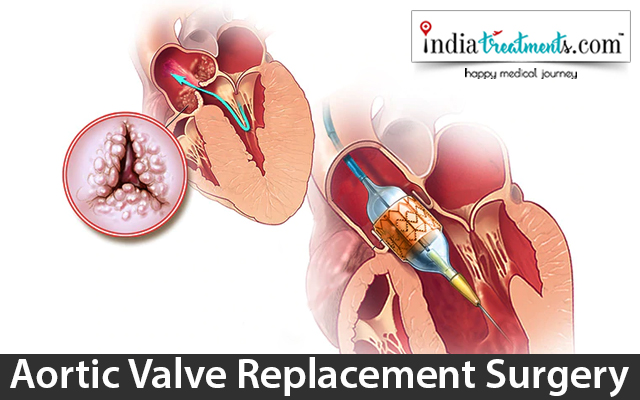If there is a problem with your heart’s aortic valve, you may have to undergo this operation. When this valve opens there is the movement of blood into the aorta from your heart. The blood also travels to the rest of your body at this time. The blood does not again flow back into the heart as the aortic valve closes down. With every heartbeat, there is the repetition of this cycle. The doctor may ask you to go for surgery if there are problems with the valve. Aortic valve replacement surgery is less costly in India than the developed countries. According to the data of the best medical tourism companies, many patients come from these countries to India for this surgery.
Problems in the Aortic Valve
There can be a problem with your aortic valve from the time you were born. The wear and tear of the valve for many years can also cause this problem. It can sometimes be the result of other health conditions. These issues often lead to:
-
Regurgitation: When the blood flows backwards into the heart because the valve doesn’t close completely, this happens.
-
Stenosis: When enough blood does not flow out of the heart because the opening of the valve becomes narrow, this happens.
Chest pain, fainting, dizziness, and shortness of breath are some of the symptoms. It can be life-threatening if the valve isn’t replaced.
Replacement Aortic Valves
The replacement aortic valves are of two types.
-
Mechanical valves: The raw materials of these valves are metal, carbon or plastic. Although they last longer, they increase your chance of having blood clots. You will have the need for blood thinners as long as you live.
-
Biological valves: There is the use of animal tissue in the making of these valves. In comparison to mechanical valves, these valves last for a shorter time. However, blood clots don’t form due to these valves.
Preparations
The doctor will carry out a complete physical exam before the surgery. He/she will also suggest some diagnostic tests including blood tests, urine tests, electrocardiogram (EKG) and chest X-ray. You need to inform the doctor if you are taking any medicines as you may need to stop them. You cannot eat or drink anything since midnight before the surgery. You have to wash your whole body with a special soap to kill germs.
The procedure
It will take two to four hours to complete if it is open-heart surgery. You will remain asleep under the effect of general anaesthesia during the procedure. In your chest, the surgeon makes an opening of six to eight inches in size and splits open your breastbone. He/she connects a heart-lung machine to your body after stopping your heart. Then the surgeon replaces the damaged valve with a new one and restarts your heart. In the end, the surgeon closes up your chest.
The surgery is also possible by a minimally invasive procedure. There are expert surgeons for this procedure in India and so many foreign patients come here. The best medical tourism companies in India keep in touch with them during their stay in India. The surgeon makes a smaller cut in your chest. He/she may also not remove the breastbone in some cases. The surgeon inserts a thin tube through an opening in your leg and takes it up to your heart. A new valve is placed by the surgeon with the help of this tube.

